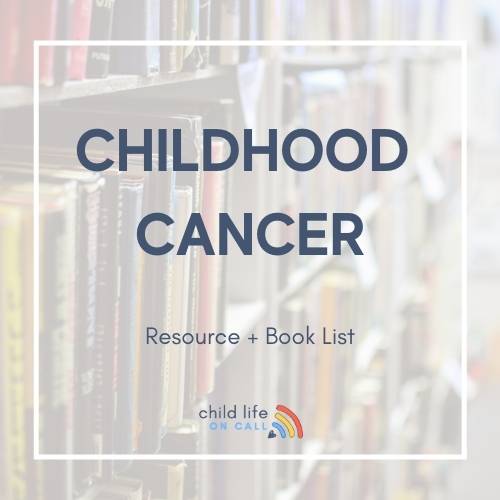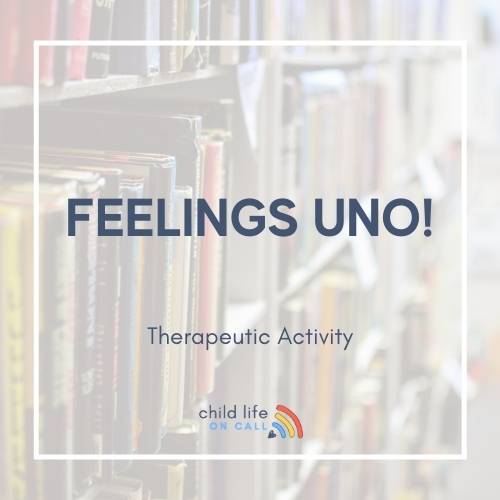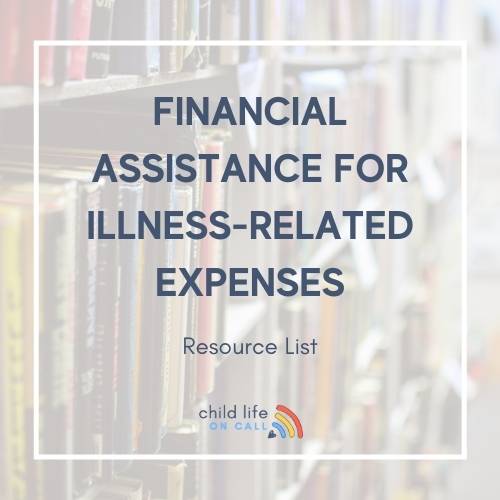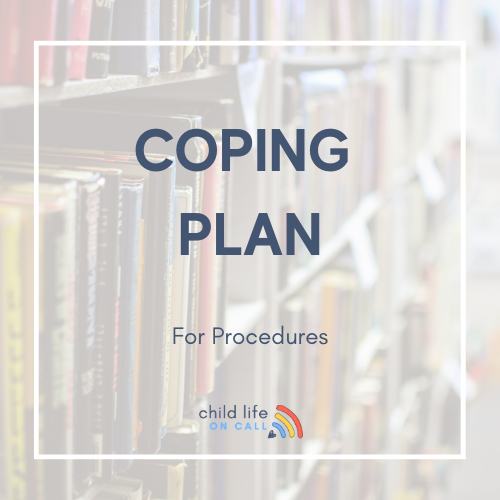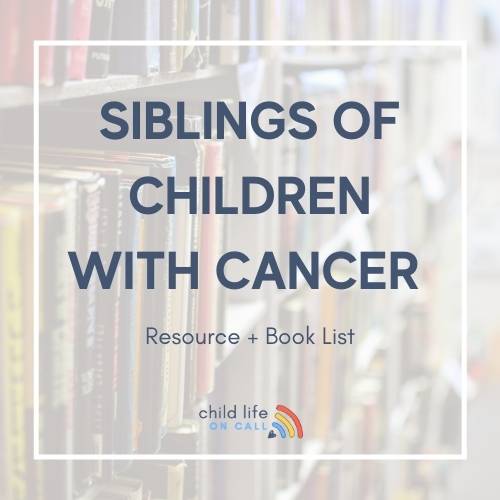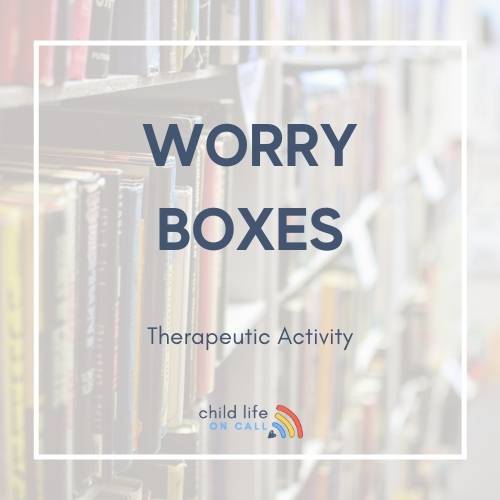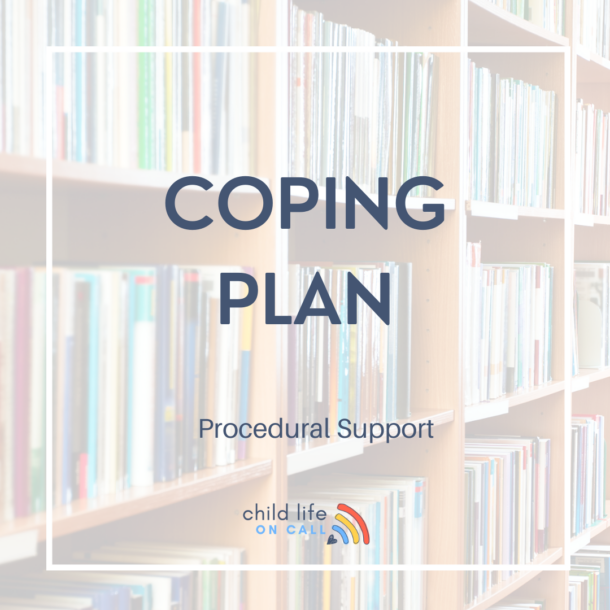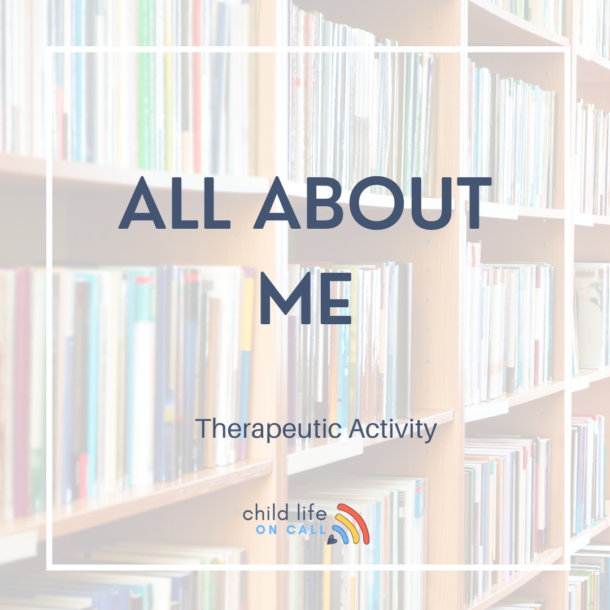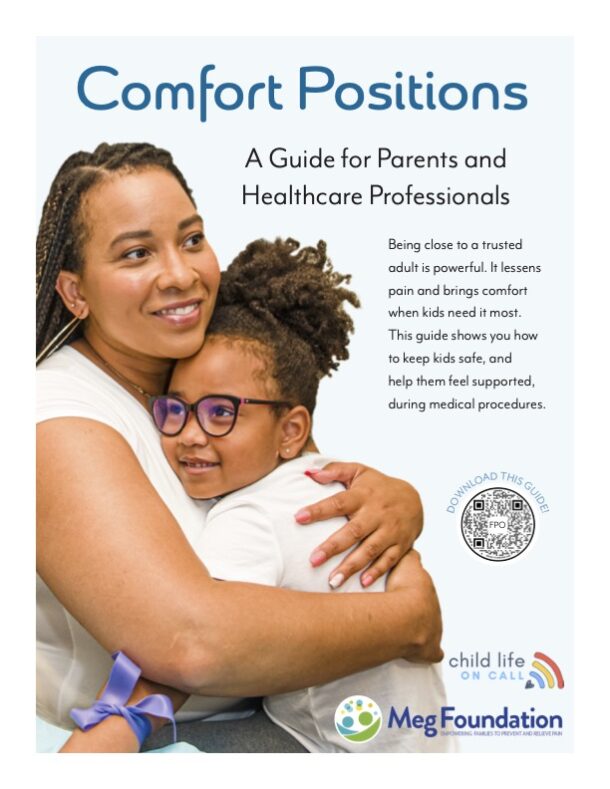April is Child Abuse Prevention Awareness Month. We have reposted this episode to bring awareness and give you tangible tools to speak with your kids about child abuse. Today’s guest expert is Jane Donovan, who is a child abuse prevention advocate. "And like we say in...
Episode 178 | Expert Guest on Adolescent Medicine: Dr. Hina Talib
Podcast Show Notes
In a world where unexpected twists can alter the course of our lives, Hina Talib’s journey into adolescent medicine was nothing short of serendipitous. Little did she know that a chance encounter during a medical school rotation would ignite a passion so fierce, so resolute, that it would shape her life’s work. But what was it about this field that captivated her? What secrets did she uncover that could forever change the lives of parents with health concerns for their teenagers? Brace yourselves, for within this transcript lies an unexpected twist that will leave you yearning for more.
If we know that we’re doing it as a team, then that helps or can help.
My special guest is Hina Talib.
Meet Hina Talib, a dynamic combination of knowledge and empathy working as a pediatrician and specialist in adolescent medicine. Her love for her field was love at first sight during a rotation in medical school, realizing the life-changing impact doctors could have by addressing sensitive topics essential to teenage health. Dr. Hina’s approach stands out for her ability to authentically connect with her adolescent patients and their parents, advocating for a healthier future for every teen she meets.
This is Hina Talib’s story:
A chance encounter with adolescent medicine during a medical school rotation led Hina Talib to her life’s work. The magic of the field instantly captivated her – the power to nudge young lives in the right direction, to drop nuggets of wisdom that could shape their future. It wasn’t just about treating medical conditions, it was about understanding the emotional, social, and physical changes they were experiencing. She saw adolescents as more than a stereotypical representation – ‘the difficult ones’, ‘the lazy ones’. To Hina, they were creative, insightful, and untouched by life’s cynicisms. She felt a calling to not only help them navigate through their adolescent years but also help their parents understand and connect with them better.
In this episode, you will be able to:
- Unmask the importance of trusting your gut feeling when it comes to your child’s health concerns.
- Explore why regular open conversations with your child can provide insights into their invisible struggles.
- Learn to appreciate the significant role of medical professionals in ensuring your child’s health.
- Delve into the decisive role of your intuition in identifying potential mental health issues of your child.
- Understand why maintaining a behavioral log can be crucial for future medical consultations.
The resources mentioned in this episode are:
- Follow Dr. Hina Talib on Instagram as @TeenHealthDoc for thought-provoking and educational content on adolescent medicine.
- Check out the Child Life On Call app, a resource for parents with children who have medical experiences, diagnoses, or diseases.
- Explore Hello Sleuth, a startup in New York City that puts parents and teens at the center of adolescent medicine.
- Remember that words matter when communicating with teens and their parents. Avoid labeling and use empowering language when discussing medical conditions.
- Encourage teens to advocate for themselves by asking questions, seeking information from healthcare professionals, and taking an active role in their own healthcare decisions.
- Familiarize yourself with the field of transition medicine, which helps guide adolescents in becoming their own chief medical officers and transitioning from parental healthcare management.
- Start the transition process early, with milestones such as private, confidential time with the teen, encouraging them to ask questions, and involving them in their own healthcare decisions.
- Create opportunities for one-on-one conversations with adolescents to ensure their voices are heard and their questions are addressed.
- Be mindful of the timing when assigning medical care tasks to adolescents with chronic conditions, avoiding overwhelming them during times of flare-ups
Whether you are a parent or professional, we want you to join our community. Sign up for our newsletter here.
Parents, download our free parent starter kit.
When you download our starter kit, you’ll learn how to:
- Give medicine to your child without it becoming a wrestling match
- Prepare your child (and yourself) for a shot so they can feel less anxious
- Create and use a coping plan for any medical appointment or procedure
The first sign of sniffles, or worse, shouldn’t send you into a tailspin. Feel confident in your role as a parent and advocate, no matter what medical situation you’re facing.
Child life specialists, get affordable PDUs on-demand here.
Shop for your CLOC gear here.
Episode Transcript
00:00:00
You’re listening to episode 178, dr. Hina Talib, an expert in adolescent medicine, and you may know her on Instagram as Teen Health Doc. Hello, my friends. Welcome to child life on call. This podcast is a safe place for parents to share their stories about what it’s like to have a child that has a medical experience, diagnosis, disease, and or everything in between.
00:00:27
We know there’s power in sharing stories, and that power multiplies when you can listen to other parents who have walked a similar path to yours. Giving and getting advice is great, but hearing how another parent navigates the complexities and nuances of health care is even better. As a child life specialist, my role is to support, validate, and provide emotionally safe spaces for kids and their families, and I am so honored to be on this journey with you. In addition to parent stories, we sprinkle in some expert episodes every now and again that have content for both parents and professionals in the field of healthcare, all with the mission to empower parents to be confident advocates and partners with the care team during healthcare experiences. We’re so glad you’re here.
00:01:12
Hello, my friends. I’m so happy that you’re here today. I have had the pleasure to work with some of the most brilliant and kind clinicians in the field of healthcare. In my experience, Dr. Hina Talib, who I first met on Instagram as Teen Health Doc, has not only shown to be extremely thought provoking, helpful, educational, easy to connect with, authentic, I could just go on and on.
00:01:46
But she’s also so approachable, and I think that’s incredibly rare when it comes to being a physician. And maybe it’s because of the pedestal that we sometimes put physicians on in our society, and I’m sure there’s so many cultural backgrounds and parts to the. Way that we feel. But, Dr. Hina, I can reach out to on instagram.
00:02:10
She took a meeting with me almost more than a year ago about the Child Life On Call app because she was literally working as an adolescent medicine doctor and wanted to know how to support her patients. And now, as you’ll learn today, she’s a part of an amazing new startup in New York City that really puts parents at the center of adolescent medicine.
00:02:36
That really puts teens at the center of adolescent medicine. And I’m just so thrilled to share our conversation with you today. It’s always really special when I get to have serene Noor Ali, who is the co founder of Hello Sleuth with me. She does amazing things and is really from the ground up, creating the Next WebMD or like Google for parents as far as pediatric health care conditions go. And so I hope you enjoy our conversation.
00:03:08
We’re so excited that you’re here. I think adolescent pediatricians are so special. Like, you don’t know until you really need them why they exist, and you’re like, oh, my God, thank God. So please can you kick off by telling us a little bit more about. Yourself and also how and why you got into adolescent medicine.
00:03:27
Absolutely. First of all, thank you both for having me here. I am delighted to speak with you, and both of your missions resonate so much with me personally and professionally. So it’s extra special to be able to take this time speaking with you both and with our audience today. I am Dr.
00:03:45
Hina Talib. I am, as Serene said, a pediatrician and adolescent medicine specialist. And I came to pediatrics younger in my life. I think I always knew I wanted to do something with children, but I didn’t really understand or know what adolescent medicine was until medical school when I did a rotation in it. And it was sort of like love at first sight.
00:04:06
I was just like, wow, I can’t believe there’s an entire field where you get to talk to your patients about these sensitive topics that can really impact their entire life courses. Because sometimes it feels a little bit like futile to try and make changes in adults because it’s hard. And in teenagers, you can course correct. You can drop nuggets that will just be filed away in their brains for the future. And I just found it very magical and powerful and really wanted to be a part of it.
00:04:34
And I really enjoyed connecting and interviewing adolescents as well as supporting parents. Oh, my goodness, I love that. So part of my fellowship at Child Life On Call’s was in adolescent medicine too. And I, too, just so connected with these teenagers that were so hungry for companionship a lot of the time because they weren’t having it from their peers, right. If they had to be in the hospital for ulcerative colitis for a long time or whatever, it was these teenage patients that would drop an Ng tube on themselves without thinking twice.
00:05:06
It’s just so amazing, right, the growth that you get to watch in teenagers. So I very much resonate with your connection to it. Well, also because, Doctor, what I love about it and I have not been in a clinical setting like you guys have, but I’ve been a camp counselor and I really love being a counselor to teens. And something you talk about a lot is how amazing they are. You reframe it so much.
00:05:34
I don’t know. Do you mind just touching on that? I think adolescents and young adults get a bad rap, and it really bothers me, and I’m sure it bothers them whether they even realize it or not, though. And so it’s sort of like anytime they interface with adults or people around them, you can sort of see people sigh or roll their eyes or just be like, oh. And they feel that and they see it over time, and I think it really weighs on them and it’s totally unfair.
00:06:03
They are going through a lot of changes emotionally in their body, socially amongst their friends that are really developmentally normal and other people. You know what I think it is? I think grown ups or adults and caregivers, everybody had complicated memories of their adolescence. Some are really positive, and some are really not. But those memories were really salient.
00:06:27
They stay with us. And so I think that they put a lot of what we went through, perhaps on our adolescence, and we have a lot of assumptions that could be totally off. And for young people to walk into that from their teachers, it’s unconscious bias. A lot of the times, it’s just sort of like, oh, they don’t care. They’re lazy.
00:06:47
They’re going to be difficult. Oh, this is going to be a hard patient encounter or a really tough day, because I have teens on my schedule. I balk at that, because if you kind of open the door with them and listen to them and make them feel safe, they’re so polite, they’re so wonderful, they have such insights to share. They see things in a different way than we do because they’re not jaded. They are more naturally creative.
00:07:11
They are out of the box thinkers. And so I do what I can to help let them know that I see them for who they are, and I want them to be who they are, and I want to help them show theirselves to their parents so they connect to their parents better and then to other people of power in the world around them. So I think helping them kind of advocate for themselves is a big part of what we do in supporting young people today. That’s such a good perspective in three. And I noticed that too, every time I look at your information, your education.
00:07:45
Dr. Hina. I love that. It’s funny you said that thing about all of adults labeling. I was just looking at what’s the neighbor’s Facebook page that you can see what everybody posts.
00:07:56
We have one on Facebook, and it’s like, these teens just cracked my window, and they don’t care. And I’m sure this guy has no. Idea who actually cracked his window or what it was, but that stigma lives with them. I want to transition a little bit staying here in the labeling. A lot of times teens can come into the Er for either behavioral health issues or mental health issues.
00:08:21
And even sometimes the care team I hate to say it, can put on this label before the teens even get in the door, before we even see what their face looks like. And then beyond that labeling, their parents too. What do you see, I guess, in your work with adolescents when they’re thrust into the health care environment, and maybe they’re already being labeled? How can they advocate for themselves at that time? Oh, that’s such a great question, and I think this labeling phenomenon is very real.
00:08:49
And in medicine, we do try to and I know Serene was talking about reframes that I like. But we do try to not call teens by their medical diagnoses like that asthmatic or that depressed child or that anxious child or what have you, because it’s easy to kind of use shortcuts when you’re speaking amongst physicians. But words matter, so you really want to be careful. You don’t know who’s in earshot and you don’t know who’s reading a note that you might be writing. And so it is very important to say this is a 17 year old thriving adolescent who has asthma or who suffers from anxiety or depression or whose problem current medical problem list includes and not sort of label them as such.
00:09:30
I see this happening also with teens who identify as LGBTQ because oftentimes it’s sort of like up and center. Like this is a bisexual teen who blah blah blah blah blah and it’s sort of like, well, actually that doesn’t need to be in their identifier right when you’re talking about this patient. It’s not a risk factor. It’s helpful information and context and it guides your counseling. But you don’t need to label a teen when you’re trying to kind of digest them or communicate about them, especially again in earshot of them.
00:10:00
Definitely be mindful. This comes up with all sorts of medical conditions. But I think this labeling, I think it’s more powerful than people think. I think words matter when you’re speaking to teens and their parents and your medical team because you set the tone. So it’s important to just someone says it one way, you repeat it back, but you use your words and you reframe it and say, well, actually, this is a teen who blah blah, blah, blah, blah, instead of this is the IBD kid, or this is the ulcerative colitis kid in that room, because that’s not all of who they are.
00:10:31
Absolutely not.
00:10:36
And that’s so helpful I never realized. Actually, we’re talking about a risk factor that sometimes when we use medical jargon that’s actually kind of the purpose, like the short form is for that. So that makes a lot of sense for the teen that has a chronic condition who might be used to having their parent along from the beginning. What are ways that the parents and the family and the child can start transitioning more for the teen to advocate, particularly if that’s a skill set that they’re going to have to get used. To as an adult?
00:11:14
Yes, a transition medicine is an entire field within pediatrics and internal medicine. It helps guide us there’s good evidence base to kind of help guide the steps from an adolescent having their parent or caregiver be kind of their chief medical officer for lack of a better word. And as they move through those years, the parent becomes the consultant and the adolescent becomes their own chief medical officer making and leading their decisions. But it is a process. It can happen over time.
00:11:45
I have found that it can be accelerated. In adolescents who have chronic medical issues because they are medically savvy. They have learned organizational skills, they have learned self care skills, whether they’ve let it or been independently doing it, maybe a different thing. And that may happen over time, but they’re more aware of it. And so I find teens who are medically complex brilliant when it comes to transitioning.
00:12:12
They know what it is to not being able to fill up prescription because it’s not been a month and it’s not due yet. And that your parent may have to make some phone calls to make it actually happen, or when insurance denies it. They’ve heard all this in the background and they are more savvy to it. And whereas other children will leave the home, go to college or out into the world, they have no idea, because if they haven’t faced a health challenge, they have no idea how to speak to a pharmacist. That you can actually when you pick up a medication, you can actually have a conversation with the pharmacist and ask them questions about the medication.
00:12:44
You can be like, hey, what are the side effects? That’s actually they love doing that. That’s an important part of their role. In addition to asking questions yourself of your doctor and advocating for your needs in school and in other spaces like in work, if there are needs that need to be considered when you’re engaging in those activities. So I think really you can reflect on this kind of evidence space that we have about transition medicine.
00:13:09
It can start as young as eleven. It has little milestones of having that private, confidential time with the teen and really helping the teen to say, what are your questions? Centering them, encouraging them to ask questions and sometimes letting them go first and sometimes letting the parents say what they need to, but then always making sure to make eye contact with that teenager and say, okay, we’ve said a lot. We’ve been talking over you. I’m sorry.
00:13:31
Please. Now tell, what did you hear and what are your questions? Because sometimes it’s really hard to not just jump in when you’re with the parent in front of you when there is a medical issue that everybody is really hot to talk about. So there’s no missed opportunities. If you feel like you didn’t do it in the beginning, you can always come back and take that time for that adolescent, invite them back to speak to you one on one and then yeah, over time you give them little tasks that they can handle that isn’t onerous.
00:13:58
I will say that when you have a chronic medical issue and you’re going through a flare or you’re going through an escalation of that medical issue, that’s not the time to put more on the young person in terms of the tasks of medical care. But so you be thoughtful about it when they’re doing well, when things are being managed. Okay, sure. Let them call the pharmacy and see. Is that medication ready to be?
00:14:18
Is the refill ready to be picked up? Let them write down their questions to ask their physician when you have the next meeting to directly have those be answered. But be prepared by helping them write it in a notepad in their phone or in a notebook that they carry with their medical information. Just knowing their medical history, I mean, starting in the very beginning. Do your kids know what the medical history is in the family?
00:14:41
Like the family history? Many kids don’t have any idea. But it is important to know if you’ve had certain cardiac illnesses or a loss of life in a younger person in your family history, it’s very important for them to know that and to have it in the back of their mind. So in an emergency, if somebody’s asking them these questions, they know it. And then later what their medication list is, what their doses are, what their allergies are.
00:15:06
Sounds really simple, but at age 1112, not all kids know this. And so we start with sort of knowing yourself and knowing your history, and then we move on slowly to tasks being done under the direction of your parent or caregiver, and then later tasks being done independently, like remembering to refill your own medications, to take your own medications, to make decisions about your medications with your doctor. Because as you grow, sometimes medication plans change of course. I’ve never thought about that pharmacist interaction and how empowering that could be. It’s even hard, like when you’re like to go buy your first thing at the store with your own money.
00:15:46
It’s like these little skills that you’re learning and developing and that seems like. A really powerful one. I have a somewhat personally rooted question about adolescent medicine for complex. One of the things just to give color to it. I have a six year old.
00:16:02
She has some medical complexity and I kind of know how to navigate going to the hospital with her now. And I always wonder how does it change over time when you have a younger child? I assume that the parent role. I have a lot of influence on her. It’s hard, but it’s easy because I.
00:16:20
Know she needs me and I can make myself available. But I wonder what’s going to happen when she’s twelve or 13. Can you talk to us a little bit about the transition? I think a lot of listeners also. Have children that have medical complexity or chronic conditions.
00:16:34
It’s just kind of nice to know what might be down the road and. How to navigate that.
00:16:42
Be prepared for as they start to have more opinions and take ownership of their body and their choices, be prepared for it to not go perfectly because you’re giving control away. And that is hard for any parent. But I think it’s exceptionally hard for parents of kiddos who have a medical complexity, because all we can do and I have two kids and both who have gone through their own medical challenges as well. But all we have sometimes is our control, our ability to be incredibly anal and detailed with our records and with our plans and with who we’ve spoken to. And kind of staying on top of all that is an element of control that does give some element of solace to people in an otherwise chaotic situation.
00:17:30
So giving up elements of control to your child, I have seen parents and family units go through this is very hard and because they’re going to say and realize, well, this medication makes me feel this way and it’s not good, or this medication, I don’t feel a darn thing when I take it, right? It’s not tied to me feeling good or bad, so why am I going to take it? I googled this and there’s new medications out there. Why do you have me on an old medication? But so all these things are going to come at you that are sort of not what you not questions that came out of your own head or perhaps you’ve already thought through this, but you hadn’t really brought them into the conversation about why you chose this path and this doctor and this children’s hospital and this medication.
00:18:15
And it’s totally normal for them to start to have questions as they speak to other people about these things. So I think it’s just very normal. I would expect that feeling of giving up control to be difficult. I would expect choices that your adolescent makes to have missteps. Again, they may stop taking a medication you think they’re taking it and that’s frankly little t traumatizing to families because it’s like they had no idea their child wasn’t taking this medication.
00:18:43
And it comes to light and then there’s a lot of big feelings about it. But it’s also so normal because again, some of these medications, they may not know why they’re taking it, they may make them feel bad and they may in their own minds come up with a plan of, well, I’m not going to take it on the weekends or I’m not going to take it on vacation. And in some cases there’s an element of okayness about that, but it involves a conversation with your team. And so I think the best way to stay ahead of this is to really get in the practice of having family meetings, especially when you have a medically complex child. So if team meetings with your physician for sure are very helpful, that center the child and let them feel like they have a say and a place in the decision.
00:19:21
So it feels like the decisions are coming from them, but at home for family communication and as you are sort of in that process of giving control over to have regular check ins. And it can be formal or it can be attached to a meal, or it can be before a family activity or after family activity, but just something that’s built into okay, once a week or once every other week or once a month, we sit down together and frankly, talk about what’s working, what’s not working. What are your questions about the treatment plan? And if we need to dig more or find get second opinions and things like that, then we can. But if they’re sitting on something and they’re not sharing it and making their own plans, I think being open to how they’re feeling every step of the way and when they feel ready, they may surprise you and feel ready sooner than you think for you to stop kind of nagging or checking in about whether they’re doing certain tasks related to their medical issues.
00:20:13
But you can make a deal. Okay, I’m not going to say anything for two weeks until our next check in, and we’ll see how it goes. And so you can phase in some of this giving over control and you can make adjustments over time. But if we know that we’re doing it as a team, then that helps or can help.
00:20:32
Yes. I mean, it’s just so good. I would add a little bit to that family meeting time. If you can work in some kind of positive part of it and that’s like, the teen gets to choose the dinner, you get to do something afterwards. It’s important.
00:20:50
I know my mom, she would have Sunday night values conversations with us, and we’d be like, oh, my God. And looking back, I’m like, what a beautiful gift she gave our family. But as a teen, I didn’t like it. But maybe if there’s also that element of their buy in, they get to choose something that could help with that coming together. Katie, you’re going to have to brief me on the values conversation.
00:21:13
That also seems very important. She would come with a news article from the Dallas Morning News that day, and we’d, like, discuss it. Oh, my gosh, I want your mom. That sounds awesome. She’s amazing.
00:21:26
That sounds amazing. Yeah. The element of choice, the element of playfulness and spontaneity, these are things that can offset hard challenges or hard conversations. So those are all excellent ideas. And I think what you started saying is that positive element to it, a lot of it.
00:21:48
It’s so easy for us to kind of focus on what’s not going well and forget to say out loud, to speak what we see that is positive. And that’s important for any teenager because of that. Going back to that bad rap that I feel that they get all the time, they don’t hear it enough from people, their positive attributes or their many actions that you might see them doing. Oh, you have the door open for that older person in the grocery store. And I noticed that, and it just warned my heart, thank you, or I’m in awe of you, or wow, you’re just such an amazing person.
00:22:20
So I think that saying the positive about them related to their medical complexity, care that they are doing can really be so valuable and can be proactive and can be done at any age, actually.
00:22:36
What have you seen with teens who are navigating the loss of specialization coming out of the pandemic and related to that, what are some of the other risk factors that you want us to be aware of? Assuming the loss of socialization is a risk factor? Yes. I do think that there was a time, let’s say in the deep pandemic in the 2020 thousand and 221, when there was really an acute loss of socialization, of personal connection, of in person time, of rites of passage. Like graduation ceremonies and dances and camps and sleepovers, really.
00:23:14
Like social milestones that a lot of young people look forward to and that add layers and colors and sometimes not fun things to their adolescent memories. There was a lot of disconnection there. And so I do think that that was particularly hard for adolescent girls because those social lives and those in person touch points are really influential for them, but for boys as well, because we’ve seen that boys were also challenged with emotional and mental health during the pandemic in terms of things or risk factors to look out for. For most adolescents, not everyone, the touch points have returned or are being phased back in so that you are starting to see return of camps of sleepovers, of sleepaway camp, which we talked about before and I’m not ready for, but dances for sure and ceremonies and milestones and things like that are all really coming back. But everything feels nothing is normal and everything feels harder than it was before and some of it is just still in our minds and they still miss something.
00:24:23
So just because you have it now in their overall lives, which are not long, they still had this good chunk of time where they missed stuff. So it isn’t fixed just by going back to school. In fact, going back to school and going back to socialization is really hard on some of our young people because it was easier for some of them who had social anxiety develop to not be participating and then to go back and having to participate became and felt harder for some because they didn’t have the practice along the way and they had a lot of time away from it. So in terms of things to look out for, things that we really saw, we saw a rise of eating disorders, they were rising before the pandemic, but we saw them acutely go up during the pandemic. We saw increases in depression and anxiety and again, both of those were going up before the pandemic, but we definitely saw it go up even more during the pandemic.
00:25:13
I think things may have gotten missed. Health wise, Immunizations got missed, but mental health wise, I think there were a lot of ADHD diagnoses that got confusing or missed because it’s really helpful to have in person school that input from a teacher to make those diagnoses. And so a lot of them got missed because teachers weren’t able to see them in that specific age range. When you’re looking for it younger than 1211, between six and 712 and eleven, that’s when you start to usually pick those things up. And I feel like we missed some kids who are now, do they have ADHD, but they’re already a teenager and they’re older, and we don’t normally diagnose it in older teenagers.
00:25:57
And so we’re going through that mental math of, well, yes, they’re older, but there was a reason why we might have missed things that you would have picked up in school. Same for learning disabilities and younger children who missed second grade, which is like that grade where you often do pick up more learning disabilities than you do in the grades prior. And if they weren’t there in person for that, it’s possible that those things got missed too. So I don’t like to call it learning loss or math loss or things like that, but I think schools and teachers are really important to be able to pick out some things and to flag some things. And when those opportunities were missing, we may have missed some things.
00:26:35
And then in this hull of lou of going back to school and the excitement of that, I think that things do still there was an opportunity for things to get missed and the excitement of just going, being back to normal and not necessarily wanting to be like, oh, okay, now you think you have an issue. So those are you know, I would I would look to see how they’re doing in school and make sure we’re not missing learning issues, learning disabilities, and make sure we’re not missing mental health conditions. Because going back to school in and of itself was a challenge for many. And it unearthed some of these things that may have been growing and missed during the pandemic.
00:27:15
Yeah, it’s so validating to hear you say so much of that. I’m just thinking as myself as a mom and what we missed and what we went through, and it makes a lot of sense that we still have questions and are still learning so much. Just wanted to follow up really quickly on that. If the parent is talking to the child and suspects maybe ADHD or an eating disorder, what should they say to the child? It is helpful to say what you see and not your opinion or your diagnosis, but I noticed that you aren’t eating breakfast and your clothes are not fitting as well.
00:27:56
Maybe you’ve lost some weight. Do you have any thoughts about that or have you noticed it too? I’ve noticed that. You’re going to the bathroom after we eat, and I just wanted to make check in and make sure that your stomach is doing okay and your belly is okay. Do you want to talk about it?
00:28:12
So state the fact and what you’re seeing, but try to keep the opinion and the diagnosis out of it is, like, how I would normally say, if you’re really, like, you think something is there and you want to be very direct about it, the more indirect approach is just to check in. But that’s usually best done routinely. If you’re routinely checking in, that’s the way to kind of stay on top of these things. How are you feeling? How was your day?
00:28:34
How is school going? Those sorts of check ins, I think, are very helpful. But if it’s at the level of, like, I think I need to find an eating disorder specialist or ask my pediatrician if there’s a disorder here. I think it’s helpful to be direct with your young person in terms of. What you and it’s okay to say the script that you’ve talked and also say, I’ve called the pediatrician.
00:28:57
Yeah. Say, I think we should bring this up with the pediatrician when we next have an appointment. And I went ahead and checked to see, oh, they’re available tomorrow or the next day. So we’re going to go in and talk about these things together. Got it.
00:29:10
Okay, leader. It’s like, reflect back what you’re seeing. But also as a chief medical officer, even if you’re in transition, make the call, get the help, and then you guys will do it together. Okay. Super useful.
00:29:23
Yeah. Yes. I think when a kid is in crisis, when there’s a flare of an existing known medical issue, it is not only normal, natural, it’s our duty as parents to step in. And it’s hard as parents to know, where are you in that? Like, is this normal adolescent, you know, wanting to make their own decisions and and taking a circuitous route?
00:29:48
Or is this dangerous, unsafe? Am I questioning something? But if it’s in your mind at. All, I always say, like, if you. Have thought to yourself, oh, my God, I think my kid has an eating.
00:29:57
Disorder, it’s already there. And there’s nothing more powerful than a parent’s intuition. Nothing. So if it jumps into your head, I think they might actually be real depressed. Not just depressed, but real depressed or there’s something wrong.
00:30:14
They’re just not my kid. This is not the same kid that I had a year ago. And this kid looks different than his friends. And I notice it, believe it, because no one else is an expert in your kid and your family than you and your child and your partner. And so that, to me, is like, I often see people, and they were like, yeah, I thought about this, like, a year ago.
00:30:40
Or like, yeah, I noticed that she was losing weight or that he was really struggling nine months ago. And it’s just like, oh my gosh. Because when things get worse and worse and worse, it’s obviously harder to intervene. And of course, correct, not impossible. There’s always hope.
00:30:54
We will always keep on keeping on. I think trust your gut is what I would say to parents when it comes to things not feeling right with your young person.
00:31:05
It’s such good advice, I think. I love that. Trust what your gut is, and then I would recommend too, to write it down. Right. So it’s really easy as you go through it to say, oh, well, that didn’t happen this week, but did it happen the past three weeks?
00:31:19
Just kind of keeping your own track record. I know my pediatrician loves message portals often, but I can just send her a quick message and say, can I chat with you about this? Can I have some time and get that expert opinion? And you don’t have to go it alone. Yeah, I know that that is a big part of both of your missions, too.
00:31:41
We don’t have to go this alone. And asking for help, I always tell young people, is a sign of strength. There’s no question about that. If you are able to lean to people and ask for help and say you need help, that is really exercising your strength.
00:31:59
Makes me teary. Dr. Hina, you bring so much light and have such a pulse on not just adolescents, but working with the parents who love them and want to do what’s best. So tell us where we can go follow you, learn more about you, and just really just benefit so much by your skills and your expertise in being. Exactly who you are.
00:32:26
Thank you both such kind words. I really appreciate it, and I’m happy that my work is helpful and reaches people. I share a lot of tips and tricks and readings that I am reflecting on that are coming out in the media or in research on my Instagram account. So it’s at teenhealth on Instagram. And then I have a website if you’d like to connect with me more for opportunities to work with me.
00:32:49
And it’s dr. DrHinathalib.com. That’s where you can find me. Great. Well, thank you so much.
00:32:57
Thank you.
00:33:01
Thank you all so much for listening to Child Life On Call. If you head to our website, Child Life On Calloncall.com, you’re going to find all sorts of stuff there for parents, professionals, healthcare providers, Child Life On Call specialists. No matter who you are, actually, when. You just go to our homepage, it’ll tell you. It’ll help you direct to exactly where you need to go.
00:33:20
On that you’ll find opportunities. And PDUs for child life specialists, parent, we’ve got a starter kit for you. And clinicians. We even have a clinician course which teaches you how to be a confident and capable caregiver in pediatrics. We’re so grateful that you’re here.
00:33:36
Please DM us on instagram. And like, I mentioned when you rate and review this podcast it helps other families be able to find us. So let’s keep doing that and I will see you again here next week.
You Might Also Like…
215: Ruptured Appendix: Emergent Surgery, 6 Days in the Hospital & Struggles to Discharge
"I've learned so much in this whole process. It's like you have a depth inside of you that resurrects as an advocate and high alert, and it lives inside of you when you need it." -Aspen, Willa's Mom In this episode of Child Life On Call, host Katie Taylor and guest...
214: Sacrifice, Advocacy, Joy: Raising a Son with End Stage Kidney Disease – The Ransome Family’s Story
"Sometimes it's really therapeutic though to remember all that you have gone through because I feel like there are times when we look at each other and I'm like how did we get here?" Taylor Ransome We're grateful for our sponsor for this episode, Nestle Health...

